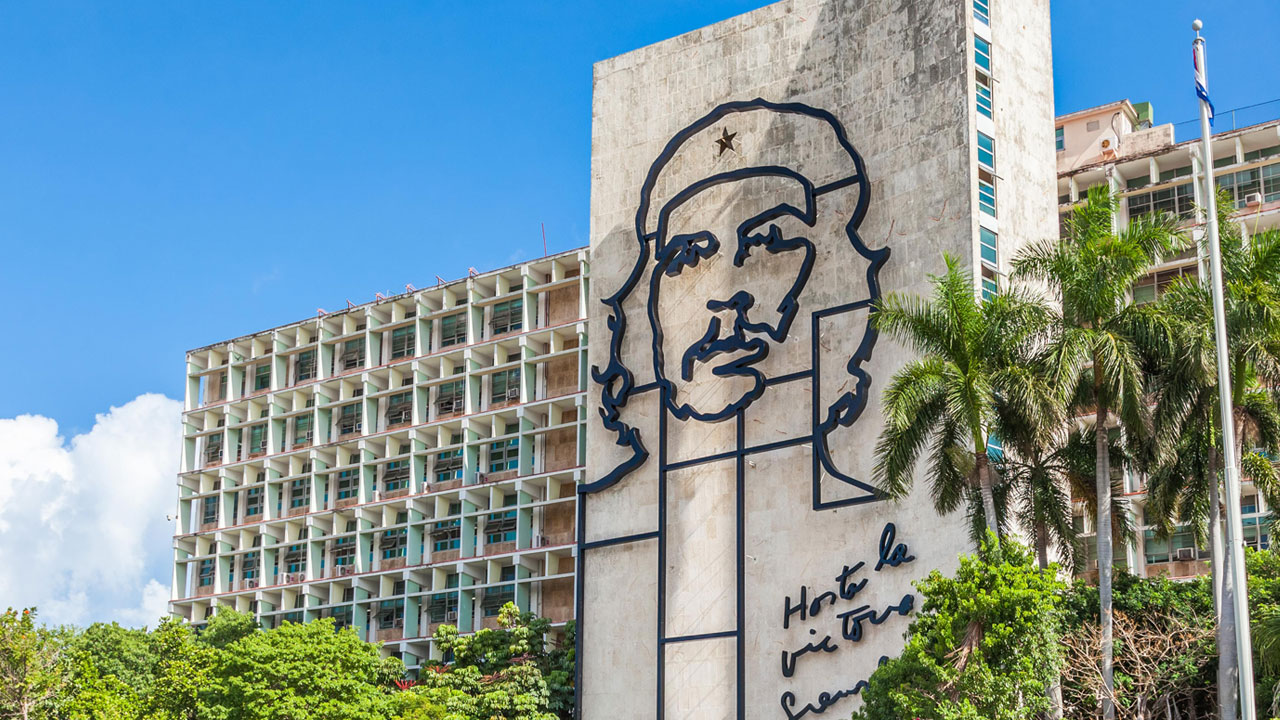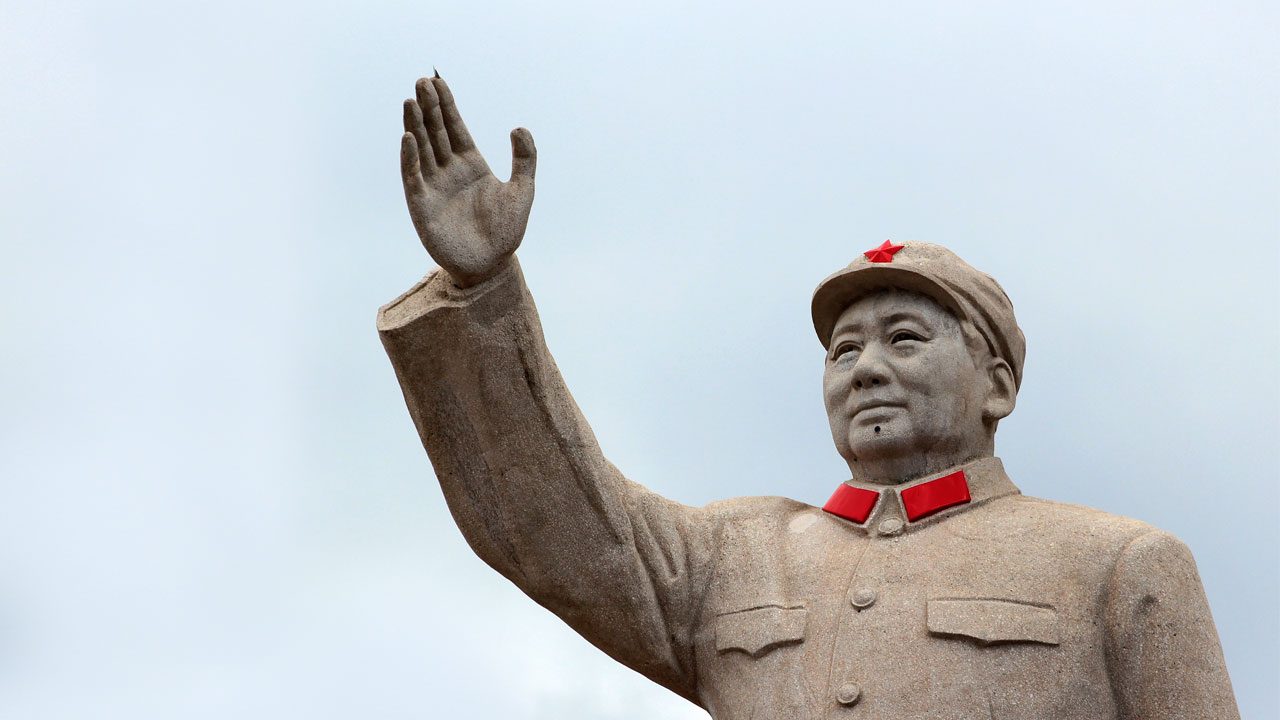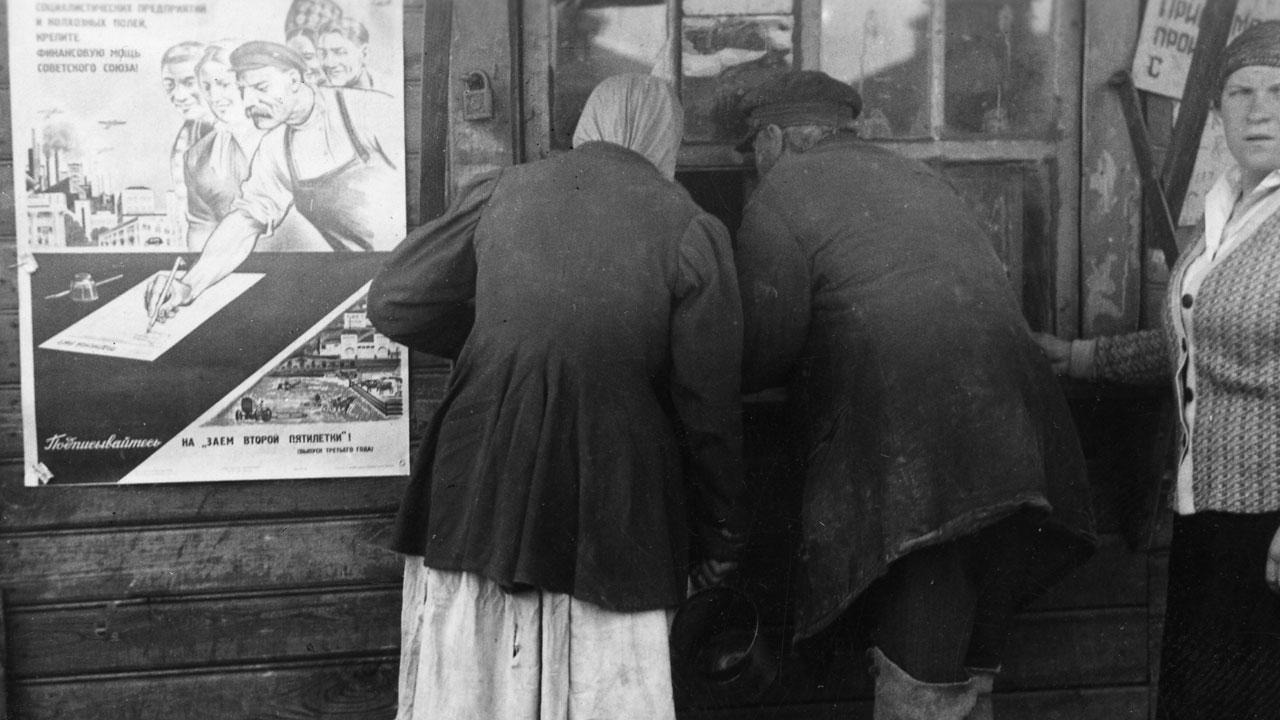The following is the second part of Justin Haskins’ “What Is Socialism?” article. The first part of the article is available by clicking here.
World Government
One of the most important and often overlooked aspects of socialism is that according to many of its proponents, in socialism’s purest form, the inhabitants of the world—not individual countries, towns, or cities—would share their resources equally and collectively make decisions. There would be no national borders, as we define them today, no national banks or currencies, and no national armies.
In The Socialist Party of Great Britain’s “Object and Declaration of Principles,” which were established by the party in 1904, socialism’s global character is emphasized:
The world is a “global village.” Each region may have its own particular and distinct customs, but they are part of a greater system of society that is world-wide. This system of society is capitalism and every region and nation operates within this system of society in one way or another. Socialism is not a cooperative island in the middle of capitalism, but a global system of society that will replace capitalism.[8]
Marx explained that in his socialist-communist model, countries and nationalities wouldn’t necessarily disappear, but that the “exploitation” of one nation by another would evaporate, suggesting the global sharing of resources:
The Communists are further reproached [by its critics] with desiring to abolish countries and nationality.
The working men have no country. We cannot take from them what they have not got. Since the proletariat[9] must first of all acquire political supremacy, must rise to be the leading class of the nation, must constitute itself the nation, it is, so far, itself national, though not in the bourgeois[10] sense of the word.
National differences and antagonisms between peoples are daily more and more vanishing, owing to the development of the bourgeoisie, to freedom of commerce, to the world-market, to uniformity in the mode of production and in the conditions of life corresponding thereto.
The supremacy of the proletariat will cause them to vanish still faster. United action, of the leading civilised countries at least, is one of the first conditions for the emancipation of the proletariat. In proportion as the exploitation of one individual by another is put an end to, the exploitation of one nation by another will also be put an end to.
In proportion as the antagonism between classes within the nation vanishes, the hostility of one nation to another will come to an end.[11]
It’s also worth mentioning here that although numerous socialist parties focus exclusively on national reforms, for socialism to work anywhere effectively, it must be working everywhere. As it was explained at the beginning of this article, socialism and communism are primarily focused on resolving problems that their adherents believe exist due to the existence of classes. Without classes, they argue, most of the world’s crises could be solved through the equitable sharing of resources.
Without a global socialist system, it would likely be impossible to have a classless society, and thus inconceivable a pure socialist system could ever be fully implemented. Although it’s theoretically possible to have separate nations with equal amounts of wealth, talent, capital, people, natural resources, etc., in reality, this never occurs. This means class differences in a world without a global socialist structure are unavoidable because variations between nations—even socialist nations—would, in effect, create separate classes.
It’s also important to understand that for Marx, socialism involved the workers of the entire world uniting together voluntarily and freely choosing to share the fruits of their labor. In many respects, it’s wrong to think of socialism as a traditional economic system. In its most complete form, it involves a radical transformation of how all people think about society and government. It’s not simply another way of structuring the existing economic and political institutions of the world.
The Road to a Socialist Utopia
Socialists disagree as to whether a socialist system could be implemented immediately or gradually, with the socialist consensus changing over time. Today, many socialist parties and activists suggest the world’s globalized economy makes the prospect of a near-immediate implementation more likely than in the nineteenth century, when the ideas of Marx, Engels, and other socialists gained significant popularity.
In Marx’s The Communist Manifesto, Marx outlined 10 steps the “most advanced” nations could take to move closer to a classless society. According to Marx, these nations would experience/institute:
- Abolition of property in land and application of all rents of land to public purposes.
- A heavy progressive or graduated income tax.
- Abolition of all right of inheritance.
- Confiscation of the property of all emigrants and rebels.
- Centralisation of credit in the hands of the State, by means of a national bank with State capital and an exclusive monopoly.
- Centralisation of the means of communication and transport in the hands of the State.
- Extension of factories and instruments of production owned by the State; the bringing into cultivation of waste-lands, and the improvement of the soil generally in accordance with a common plan.
- Equal liability of all to labour. Establishment of industrial armies, especially for agriculture.
- Combination of agriculture with manufacturing industries; gradual abolition of the distinction between town and country, by a more equable distribution of the population over the country.
- Free education for all children in public schools. Abolition of children’s factory labour in its present form.[12]
Regardless of the specific steps taken to transition to a fully formed socialist model and the length of time required to make such a transition, one thing is clear, according to Marx: “the first step in the revolution by the working class, is to raise the proletariat to the position of ruling as to win the battle of democracy.”
European-Style ‘Socialism’
Much ground has been covered over the course of this article, but I think it’s fair to say Marx’s socialism should be defined as a classless, mostly stateless, democratic economic and political system under which all or nearly all private property ownership, especially the “means of production,” is abolished and replaced by a system in which property is owned collectively. Further, in Marx’s system, society embraces the general operating principle “from each according to ability, to each according to needs.”
At this point, you may be wondering where modern “European-style socialism,” also commonly referred to in America as “democratic socialism,” fits into our discussion of socialism. If you’ve been paying attention, then you already know what many modern European “socialists” call “socialism” isn’t Marx’s socialism at all; it’s a quasi-market system that uses state control, manipulation, and welfare programs to socialize—for the lack of a better word—particular industries in society.
For instance, many developed nations have socialized medical systems or socialized health insurance industries, where the government runs and/or pays for health care. Government-dominated health care systems can fairly be called “socialized” because the whole of society participates in the system, and taxpayers are forced to contribute to it.
However, the presence of socialized industries does not make a nation “socialist” in the historical, Marxist sense. Neither does calling oneself “socialist” or “communist.” China is a “communist” country, but the truth is the modern Chinese system is quite far from Marx’s classless, worker-dominated model.
Conclusion
It’s worth acknowledging there are numerous other views of socialism that have been espoused by philosophers, political parties, and activists throughout the history of the nineteenth, twentieth, and twenty-first centuries. In many cases, these ideologies present the same ideas as those discussed above but propose different ways of implementing Marx’s dream of a classless society. In other cases, socialists are more concerned with achieving more-realistic, short-term goals, such as dramatically redistributing wealth through draconian income taxes or socializing specific industries, such as health care or higher education. In all these forms of socialism, one thing is clear: Socialists’ primary aim is to push the world in the direction of there being fewer classes, less wealth disparity, and more collectively owned industries and property.
In my article on this website titled “Socialism Is Evil,” I outline the reasons why I believe Marx’s socialism is an inherently evil system. Because so much of the current debate focuses on European-style mixed-socialism (or, according to many Marxists, “mixed-capitalism”), I will critique on this website Marx’s socialist utopian society—the same political system supported by many modern Western socialist and communist parties—as well as the European-style socialist economic system. It is my contention that both models, while distinct, are immoral systems that greatly hinder individual freedom.
PHOTO: Cuba, Che Guevara face. iStock photo by romitasromala.
[8] “Our Object and Declaration of Principles,” The Socialist Party of Great Britain, originally published in 1904, accessed May 25, 2018, https://www.worldsocialism.org/spgb/our-object-and-declaration-principles.
[9] In Marx’s writings, the “proletariat” is essentially the global “working class” in society—those who produce the world’s food, buildings, machinery, etc. with their labor.
[10] In Marx’s writings, the “bourgeois” is the economic ruling class in society—those who control most of the world’s capital. It’s better not to think of these individuals as royalty or even as the world’s wealthiest people, but rather as the relatively large group, although still much smaller than the working class, in society that controls the overwhelming majority of the industries.
[11] Karl Marx, supra note 1, pp. 18–19.
[12] Ibid., pp. 20–21.
Justin Haskins is editor-in-chief of 1818 Magazine. Haskins is a widely published writer and political commentator, the director and founder of The Henry Dearborn Institute for Human Rights, and the editorial director and research fellow at The Heartland Institute, a national free-market think tank. Haskins was first contributor to Glenn Beck's "Arguing with Socialists," a New York Times best-selling book, and the author of "Socialism Is Evil," an Amazon bestseller. He writes columns for FoxNews.com, Newsweek, and The Hill, has appeared on television more than 100 times, including numerous appearances on "Tucker Carlson Tonight." His work has been featured by the New York Times, Washington Post, Wall Street Journal, National Review, New York Post, and the White House, among many other sources. Haskins was named one of the "Top 30 Republicans Under 30" by Newsmax, is a member of the Philadelphia Society, and holds two master's degrees from Regent University. Follow him on Twitter @JustinTHaskins.







